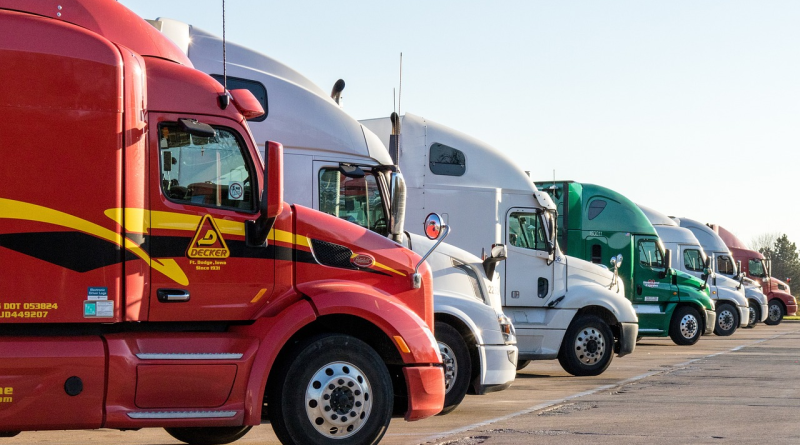Driving Your Way to Financial Freedom: The Path to a Successful Trucking Career
Image Source: Pixabay
The trucking industry offers an accessible path toward financial independence, especially for those willing to commit to the long hours and challenges. Drivers today enjoy higher pay rates as demand for freight transport continues rising across diverse sectors like retail, construction, and technology.
However, to be a successful trucker, you must invest in the right skills, strategies, and tools. Steps as simple as pursuing a Class-B Commercial Driver’s License (CDL) can unlock unforeseen opportunities.
To help you achieve your financial goals, this article explores the benefits of pursuing a trucking career and offers some tips for long-term success.
The Advantages of Pursuing a Career in Trucking
A career in trucking has steady job opportunities, thanks to the industry’s constant demand for reliable drivers. Transportation is an essential service across multiple sectors, so layoffs are less frequent.
Salaries remain competitive. Truckers earn over $60,000 annually after just a few years on the road. Some owner-operators can make even more by managing their own schedules and contracts.
Trucking also allows you to tackle debt faster than other jobs that pay similar wages without needing a college degree. With financial discipline and lower upfront educational costs, many drivers clear their debts within several years while still enjoying steady income growth.
Tips for Becoming a Professional Truck Driver
The trucking industry requires more than carefulness on the road and a strong work ethic. If you want to start off on the right foot, here are some essential tips you could apply.
Earn Your Class-B CDL
Obtaining a Class-B Commercial Driver’s License (CDL) is the first step of any successful trucking career. This certification qualifies you to operate medium-sized trucks, such as delivery vehicles or buses.
It’s crucial to fully understand the truck driver training details required for earning a Class-B license. Training programs typically include classroom instruction on road regulations and practical driving experience with a certified instructor.
You can complete many commercial licensing programs in just a few months. Additionally, most employers will assist with the costs of the training through tuition reimbursement or company-sponsorship deals.
Understand Compliance Requirements
Once you’ve acquired your CDL, you will want to stay compliant with industry regulations. Drivers must regularly meet safety and health standards outlined by the Department of Transportation (DOT) to ensure road safety. but they can also explore driving apps to make money for additional financial support.
Additionally, you must keep accurate logs for hours of service (HOG). Federal laws limit how long you can drive each day and week, with mandatory rest periods to prevent fatigue.
Compliance requirements keep changing. Therefore, ensure you stay updated on new policies affecting the industry. The good news is that most trucking companies offer in-house compliance training to keep drivers informed.
Develop Time Management Skills
Managing your time well is equally vital. Successful truckers learn to balance their schedules, knowing how long routes take while factoring in traffic, rest stops, and load times.
Poor time management skills can lead to missed deadlines and lower pay. Freight companies often reward punctuality with bonuses or better-paying routes, so hitting your delivery targets can directly affect earnings.
Technology can help here. Several apps are available to guide you on route planning, real-time traffic updates, and estimated fuel stops.
Build Relationships with Dispatchers & Fleet Managers
Lastly, after you get into the industry, foster strong relationships with dispatchers and fleet managers. Dispatchers handle scheduling and assigning loads, so being in good standing may lead to better routes or more consistent work.
Fleet managers also play a critical role. They ensure that trucks are well-maintained and ready for use, which directly affects your efficiency on the road.
Solid relationships are built on good communication and reputation. If you have any issues or need assistance with a delivery, address them professionally to strengthen trust with other workers.
Parting Shot
A trucking career offers a fast track to financial freedom, but it’s not just about hitting the open road. You must focus on building the right skills, staying compliant with regulations, and nurturing strong relationships in the industry.
Every mile driven brings more opportunities for growth, better routes, and higher paychecks. Success comes to those who invest not just in their trucks but also in their careers.
